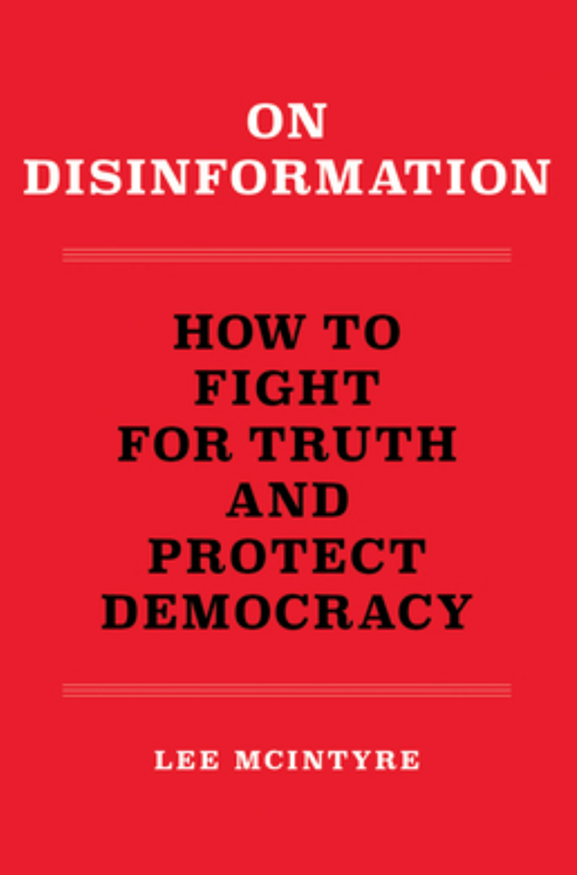I belong to AILACT (Association for Informal Logic & Critical Thinking https://ailact.wordpress.com/). Every month, a speaker talks about an issue in critical thinking. The one posted below by Lee McIntyre, Research Fellow, Center for Philosophy and History of Science, Boston University, was particularly interesting. Here is his description of the topic:
“Disinformation is the scourge of the information age, causing both science denial (climate denial, anti-vaxx, etc.) as well as the more recent “reality” denial (Trump’s claim that the 2020 election was stolen, Q-Anon conspiracies, etc.) People do not wake up one day and wonder whether there are tracking microchips in the Covid vaccines or a Jewish space laser causing the California wildfires. They are led to those ridiculous, false beliefs through strategic lies, told by those who created them, in service of their own economic, ideological, or political interests. The problem, however, is that once disinformation is in the information stream, it does not just tempt someone to believe a falsehood, but also polarizes them around a factual issue, which undermines trust and poisons the path by which they might revise past beliefs and embrace future ones. How to address this? Engaging with deniers is one path, and a recent study by Betsch and Schmid (NATURE, 2019) provides the first empirical evidence that science deniers can sometimes be led to give up their false beliefs. Most intriguing, one of the methods for doing this has nothing to do with the content of the belief itself, but focuses instead on the path of reasoning that led them to it. “Technique rebuttal” thus provides a ray of hope for philosophers and other non-scientists to address science (and reality) denial, even if they are not content experts on the topic of denial. But there is a hitch. This method doesn’t always work and it is slow. What might work better? In my new book ON DISINFORMATION, I claim that the pinch point on the disinformation highway from creation to amplification to belief is to clamp down on the spread of disinformation. In my talk, I will outline several methods by which ordinary citizens might participate in these efforts.”
